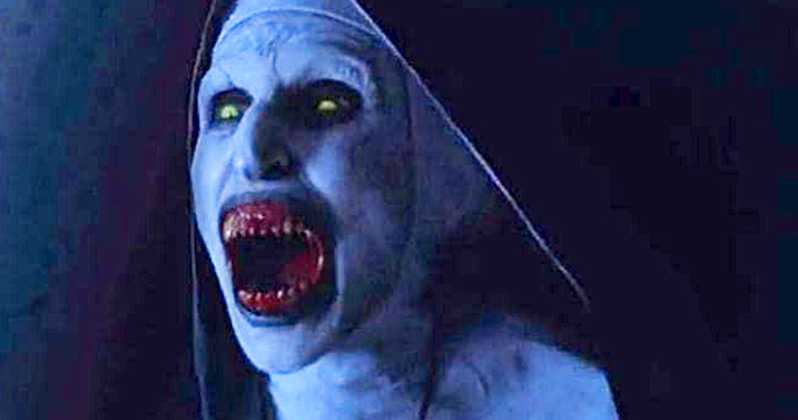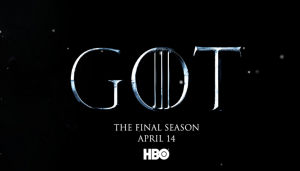The Conjuring universe is an anomaly when it comes to modern horror movie franchises. While horror movies usually go downhill from the second installment on, The Conjuring franchise has not only found great commercial success with all of its entries, but most of them have also been critically well-received, with the exceptions of the first Annabelle (2014) and, unfortunately, The Nun (2018), the most recent addition to this ever-expanding universe. While not all bad, (the production values and musical score are honestly superb) the movie fails to maintain the tension and atmosphere it seeks to create, resulting in an uneven product that barely justifies its own existence.
The year is 1952, the country Romania. A nun at a remote, forgotten convent in the countryside is found dead from apparent suicide by a French-Canadian farmer (Jonas Bloquet). After the news gets to the Vatican, Father Burke (Demián Bichir) and Sister Irene (Taissa Farmiga) are enlisted to go investigate the mysterious circumstances surrounding the nun’s death. Once they get there, it becomes clear that a wicked force has taken over the abbey and that something with a much more sinister agenda is lurking in the shadows. Prepare to be scared….or not. While not entirely original, this simple synopsis at least suggests potential, a potential that is frustratingly squandered by questionable directing choices, awkward writing, bland characterizations and, above all else, a failure to blend all this into a working whole.
Today, horror movies are often criticized for over-relying on jump-scares as a means to frighten their audiences. While this issue certainly remains true in The Nun, the problem goes beyond overreliance given how unsatisfyingly directed these sequences are. Not only are they laughingly predictable and excessive-they come up every five minutes at least-, but director Corine Hardy completely drains them of any tension by forgetting to adequately build up to them. If anything, The Conjuring movies have been able to effectively master the craft of staging spooky sequences that take their time to arrive at a release, a craft that is disappointingly non-existent in The Nun. Here, it is all cheap payoff with zero buildup.
Likewise, while it actually works to the movie’s benefit to be self-aware and humorous at times, Gary Dauberman’s screenplay often fails to find adequate spots to insert jokes or witty one-liners, making them painfully cringe-worthy. Not only do they feel out of place, often employed at times of supposedly high tension, but their delivery is so awkward and weak that it seems that even the actors were unsure about the dialogue they were given.
The main cast turns in serviceable performances that align with the weak characterizations given to their characters. Taissa Farmiga succeeds at conveying Sister Irene’s naiveté and goodwill, crafting a heroine we can root for despite not having a clear backstory or reason to be there. Demián Bichir fares a little worse as Father Burke, a stern man haunted by the past and the only character with an actual purpose. His contrived backstory, however, seems tagged along and adds nothing to the overall plot. The standouts are Bonnie Aarons as the titular Nun and Jonas Bloquet as the charismatic Frenchie. While the Nun can barely be called a character, Aarons brings the necessary intensity to the role, creating a worthy villain that is unfortunately wasted in a bad movie. Still, her superb makeup remains effective as ever. Likewise, despite serving mostly as comic-relief, Bloquet surprisingly ends up being the most endearing character in the film, playing the atheist fool with no business in a convent besides coincidence. As annoyingly disposable as his character is, he rises to the occasion every time he is on screen, bringing welcomed levity to the dire setting.
Perhaps the most frustrating aspect of The Nun, however, is that its excellent production values belong to a much better gothic horror movie. The design of the abbey is magnificent, with long dark hallways and tall curved ceilings, creating an exquisitely foreboding atmosphere that sadly is not matched by what is actually going on. Also, the fact that most scenes take place at night allows cinematographer Maxime Alexander to show off her talents, crafting beautifully vibrant shots in black and white tones, with eerie shadows waiting at every corner suggesting something macabre is afoot. Abel Korzeniowski’s score is also great, with the Nun’s main theme standing out for creating a sense of true menace and dread with religious undertones. That the crew behind the camera have done an amazing job cannot be stressed enough, which makes for an infuriating experience given the disconnect between them and the director and writer.
Overall, while The Nun does not add much to The Conjuring universe in terms of lore and world building, it is at least never dull. Leaps in logic are expected, as one never really understands why characters do what they do, but in all this mess there is some fun to be had. Let’s just hope the sequel (because there is probably going to be a sequel) is able to conjure a much better spell.






